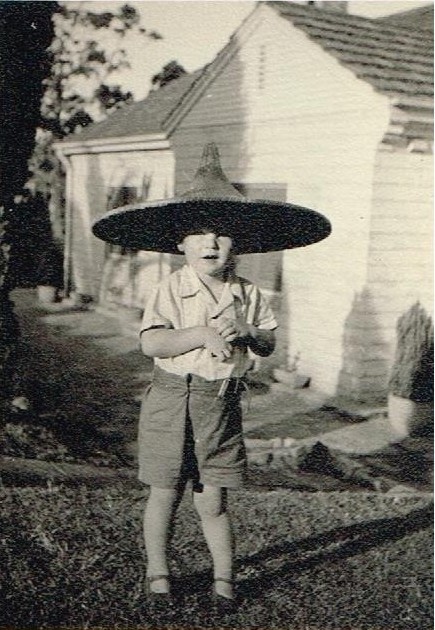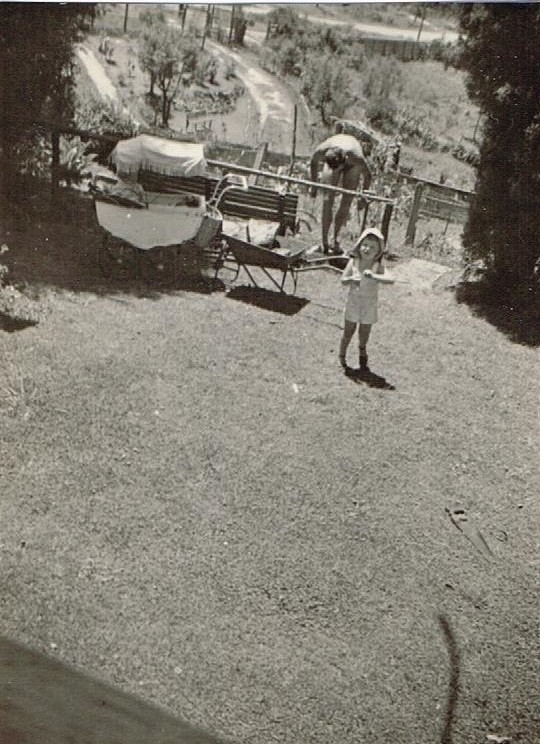I was initially motivated to write this cautionary note by the controversy surrounding the United States Senate hearing into the appointment of Judge Brett Kavanaugh to the US Supreme Court that was briefly called into question by Dr Christine Blasey Ford's testimony that Kavanaugh sexually assaulted her when they were both in their teens.
Kavanaugh is but one of many men who have come to the attention of the '#MeToo' movement, some of whom are now cooling their heels in jail.
Like the Kavanaugh example, a number of these cases, as reported in the media, seem to rely on someone's memory of events long past. Yet as I will argue below after a decade or so our memories are anything but reliable. After that time we should be respecting the accused's legal right to be presumed innocent, unless there is contemporary immutable evidence (diaries photographs and so on) or a number of non-colluding witnesses or others who have suffered a similar assault.
Now in the news another high profile person has been convicted of historical sexual assault. Cardinal George Pell has appealed his conviction on several charges relating to historical paedophilia.
There is just one accuser, the alleged victim. A second alleged victim took his own life some time ago. The case was heard twice and in total 22 of the 24 jurors decided in favour of the alleged victim, despite the best defence money could buy. Yet, as with the '#MeToo' movement in respect of powerful men, there is currently worldwide revulsion (see my Ireland Travel Notes) at sexual crimes committed within the Roman Catholic Church, such that a Cardinal is likely to be disbelieved, just as at one time a choir boy's accusations against a bishop or a priest would have been, and were, dismissed.
Both trials were held in closed court and the proceedings are secret so we have no knowledge of any supporting evidence. We do know that the two alleged victims were members of the Cathedral Choir and at least one other ex-choir boy also gave evidence. So justice may have been served.
Yet I'm just a little concerned about the historical nature of the charges. How reliable is anyone's memory?
I once believed I have an excellent memory. For example, I can tell you a great deal about these photos:
 |
 |
When I found them in an old album as an adult they held few surprises for me, except that I thought Peter's pram was black, otherwise I could confidently walk around the house in my memory describing everything as I went.
They were taken at 317 Pennant Hills Road Thornleigh NSW Australia in 1948-49, when I was three or four years old and I can clearly recall some things that are specific to the time and place the photos were taken, like: what was growing in the vegetable garden down the sandstone terraces, behind my father; and where that hat was kept. Or at least my memory persuades me I can. It seems as clear to me as yesterday.
Yet would my parents agree with me if they were alive? My own children have a different version of their young lives to the one I remember. Perhaps we focused on different things?
The problem is that children can't actually remember much from when they were three or four. It's called infantile amnesia. I can remember a lot about the photos because we went on to live in that house for another 14 years and I'm filling out and editing my memories with more recent ones. So now I have a probably fictitious but totally believable 'story' of what was taking place. I can even add the sounds of an old push grass mower; cicadas singing; the smell of cut grass; and of my mother baking scones. Or maybe I've just remembered something terrible that explains my life later on?
Elsewhere on this website I've engaged in nostalgia about times like Empire Day (bonfire night). Could I have re-remembered some of this too? Nostalgia isn't what it used to be.
My doubts about my own 'certain' memories began a couple of decades ago.
In the early 1970’s I spent some years in London and lived and worked within cycling distance of the Tate Art Gallery (now Tate Britain), a favourite place for contemplation that I visited quite frequently.
Around twenty years later I was in London again and decided to revisit the Tate. Confidently walking along The Embankment to its location I was amazed. It had disappeared! After asking someone I found it again, several hundred metres away, but I was absolutely convinced that they’d moved it to a different building. I even questioned the people at the reception as to when this had happened.
Of course it hadn’t moved, it's been in the same place since 1897. It was my clear and certain memory of the London I knew that had subtly changed; and not just at that point.
From that moment on I became a little less inclined to insist that my memories, while generally reliable, are always an immutable record of past events. Now the best I can say is that: 'on the whole my memory is reasonably good'. I had no difficulty finding the Tate again last year.
Of course even in childhood I’d noticed that others I’d shared an experience with had a slightly different version of what happened. On a school outing friends would notice different things and even ascribe different meanings or reactions, like fear; joy or surprise, to those events.
That people experience the same event differently exercises psychiatrists dealing with Post Traumatic Stress on a daily basis and as a theme it has a long literary tradition. For example it’s the basis of Akira Kurosawa's classic film Rashômon and several later movies. In that case the report of the killing changed according to the witnesses prejudices, desires and biases.
So this too masks the tricks our memory plays on us over time. We can’t rely on others to provide confirmation of our memory of an event immediately after the event, let alone decades later.
Everyone's memory is fluid, changing subtly over time.
It’s obvious to everyone that we change physically as we age. None of us has the same body we did a decade ago. And when we suffer injuries or disease healing leaves us a little different, perhaps with a scar or a limp. A mature adult loses and recreates about 60 billion replacement cells every day. So in ten or twenty years almost every cell in our body has been progressively replaced. We are like a corporation in which every staff member has changed.
It was once thought that brain cells, neurons, must be the exception. Else how is memory and thus knowledge; belief and skill preserved? But it seems that these cells too die and are replaced, with the previous connections and their switches more or less reinstated, almost perfectly. Yet it was small imperfections in these reconnections in my brain that lead to the disappearance of the Tate.
Philosophers and scientists talk about the ‘illusion of the self’ and I’ve discussed this at length elsewhere on this website so I won’t reprise it yet again.
Suffice it to say that it is clear that I and you are defined, to ourselves, by our memories. The beliefs we hold the abilities we have and the knowledge, experiences and behaviours we have learned and accumulated are all stored in our brains, as neurons and strings of connections between their synapses.
Thus learning a new skill causes our brain to grow in the relevant area. Even in old age many can learn new skills or recover from brain damage, like a stroke.
Today people live longer that they once did. So it's more apparent to everyone, that when they suffer memory loss, our acquaintances and loved ones cease to be the person they once were. When half a century was a long life this was relatively rare and it was thought, like madness, to be due to possession by the Devil. A priest would be called. Now we know it's due to damage to functional memory, as encoded in the relationships between connections in their brain and medical research aimed at mitigating dementia is concentrated on repairing or preventing such damage.
Even a healthy brain is changing all the time yet we don't notice small changes in our memory because it's its own principal reference. So we're inclined to believe our memories are a true record, even when contradicted by irrefutable physical evidence. The pram was cream!
While changes to our brain and the replacement of all our cells make us into a new person over time, this should not be a 'get out of jail card' for past crimes and misdemeanours, any more than asserting that we were under the influence of a drug when the crime was committed. But it should make us cautious about accepting anyone's distant memories as totally reliable, unless there is immutable or at least independent verification.

